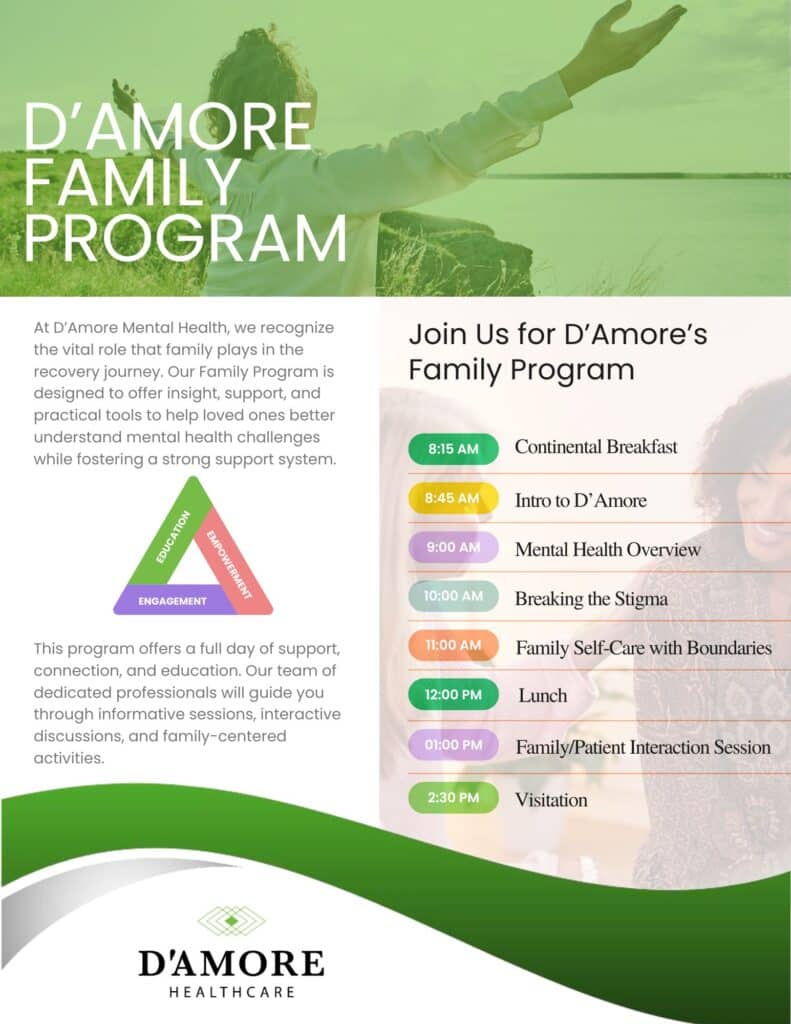


Our Family Program is designed to offer insight, support, and practical tools to help loved ones better understand mental health challenges while fostering a strong support system.
This program offers a full day of support, connection, and education. Our team of dedicated professionals will guide you through informative sessions, interactive discussions, and family-centered activities.

At D’Amore, we believe that family involvement is crucial in the mental health recovery process. Our program is rooted in the principles of education, engagement, and empowerment. Through this full-day event, families will:
Family involvement is a critical component of mental health recovery. When families actively participate in the treatment process, both the individual receiving care and their loved ones experience greater benefits. At D’Amore Mental Health, we emphasize the role of family support for several key reasons:
Mental health conditions can often be misunderstood by family members. By participating in the treatment process, families gain valuable insights into the nature of mental health disorders, how they manifest, and what treatment entails. This understanding helps families to adjust expectations and provide more effective support for their loved ones.
Recovery from mental health challenges is an ongoing journey, and having a strong support network is essential. Families who are involved in treatment become part of the patient’s extended support team, creating an environment that fosters long-term healing. When family members are educated about the illness and the recovery process, they can provide encouragement, stability, and emotional support that is aligned with the treatment plan.
Mental health issues can strain relationships, often due to miscommunication or a lack of understanding. Involving family members in treatment opens the door to healthier communication between the patient and their loved ones. Therapeutic sessions can help families better express their concerns, listen actively, and create a space for open dialogue. These skills help repair and strengthen relationships.
Many families struggle with the stigma surrounding mental health disorders. Engaging in the treatment process helps family members see the challenges their loved one is facing from a place of empathy rather than judgment. This reduces stigma within the family unit and creates a more supportive home environment where the individual feels understood and valued.
Mental health recovery isn’t just about the individual in treatment—it’s also about the well-being of the family. Family members who are actively involved in the recovery process learn the importance of setting healthy boundaries, practicing self-care, and managing their own emotional stress. This helps prevent burnout and enables them to continue providing support without sacrificing their own mental health.
Research shows that family involvement in treatment often leads to better outcomes. When families are engaged and committed to learning about mental health, individuals are more likely to adhere to treatment plans, experience fewer relapses, and achieve more sustainable recovery. The consistent support from loved ones helps patients stay motivated and connected to their recovery journey.